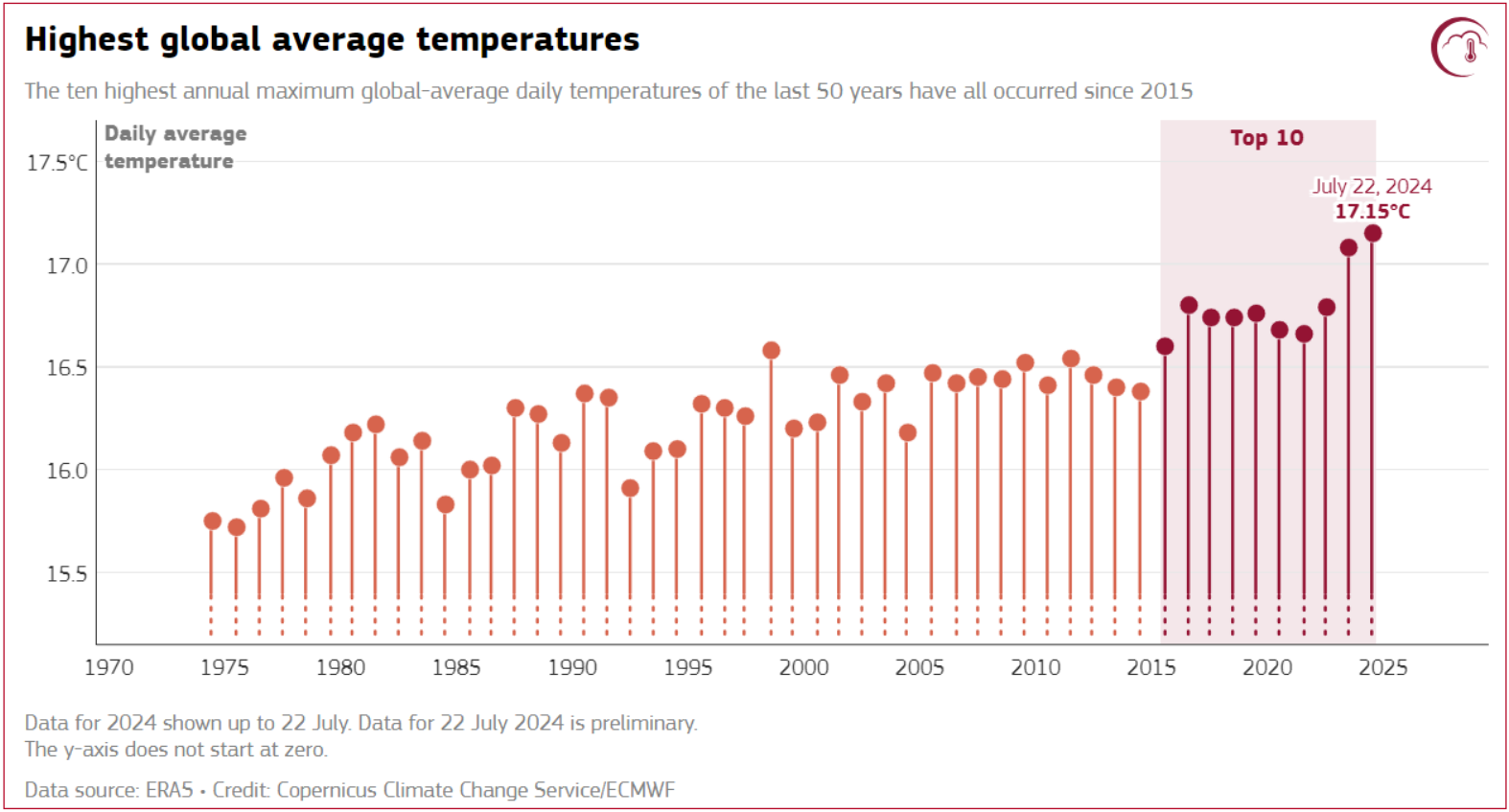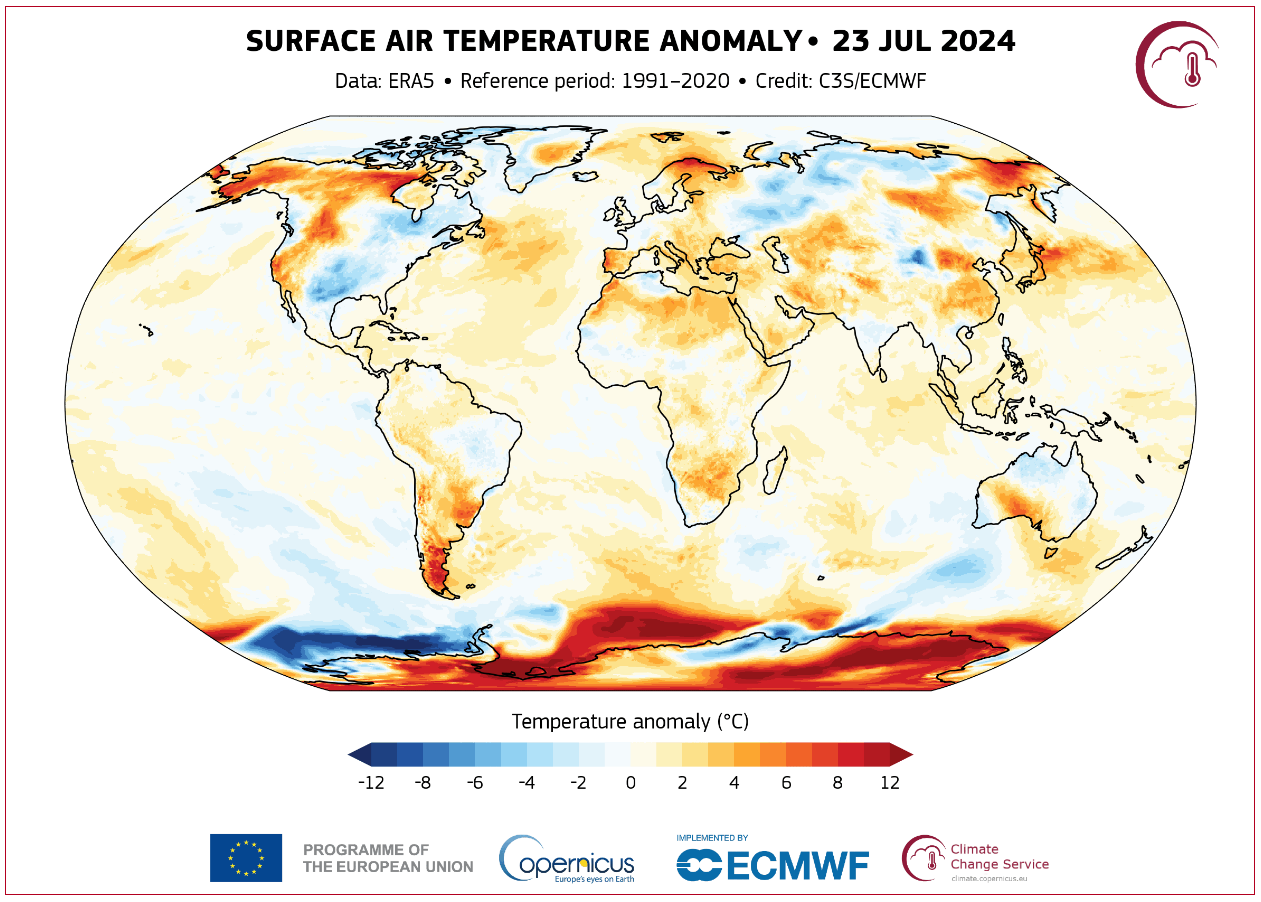Why July was record-breaking hot and whether 2024 will be warmest year in history
 Illustrative photo (Getty Images)
Illustrative photo (Getty Images)
On July 22, 2024, researchers recorded the highest average daily air temperature in history since observations began. At that time, the global temperature at the Earth's surface reached 17.15 degrees Celsius.
RBC-Ukraine reports on what concerns scientists, why the highest temperatures are most often recorded in July, and whether 2024 could become the warmest year in history.
Contents
- What concerns scientists
- Why highest temperatures were recorded in July
- Could 2024 become warmest year in history?
Amid a series of local and global temperature records set throughout July 2024, researchers are actively analyzing temperature data from past years and decades.
According to the European Union's Climate Change Service - Climate Copernicus - both 2023 and 2024 have seen annual maximums that significantly exceed those recorded in previous years.
This trend confirms the rapid process of global warming.
"The ten years with the highest annual maximum average daily temperatures have occurred in the last ten years - from 2015 to 2024," experts said, publishing a corresponding chart.

Highest global average temperatures (infographic: climate.copernicus.eu)
Why highest temperatures were recorded in July
Scientists explained that the global average temperature typically reaches its annual peak from late June to early August, coinciding with summer in the Northern Hemisphere.
Seasonal patterns in this part of the Earth determine the overall global temperature because large landmasses in the Northern Hemisphere warm faster than the oceans in the Southern Hemisphere.
"Our analysis indicates that the sudden increase in the average daily global temperature is linked to temperatures significantly above average across large areas of Antarctica," specialists said.
Additionally, temperature indicators are affected by the gradually decreasing sea ice area, leading to significantly higher average temperatures in parts of the Southern (Antarctic) Ocean.

Temperature anomalies as of July 23 (infographic: climate.copernicus.eu)
Could 2024 become warmest year in history?
According to scientists, abnormally high average temperature indicators were not entirely unexpected, as similar records are typically set during this period.
"Since the annual maximum global average temperature can be recorded anytime between late June and mid-August, current conclusions are preliminary as we monitor climate evolution almost in real-time," said Climate Copernicus.
Carlo Buontempo, Director of the Copernicus Climate Change Service (C3S), confirmed that although humanity has a new record, things could still change.
Speaking on whether 2024 could become the warmest year in human history (since observations began), researchers emphasize that this largely depends on the development and intensity of the next phase of the so-called Southern Oscillation El Niño (ENSO).
Ocean currents play a crucial role in shaping weather and climate on Earth, and the cold phenomenon of La Niña in the Pacific Ocean had "awakened" earlier.
"As of now, 2024 has been warm enough that it is likely to be overall warmer than 2023. But the exceptionally high temperatures of the last four months of the previous year indicate that making confident predictions about which year will turn out warmer is still premature," scientists concluded.
Sources: Climate Copernicus, Climate Pulse - Copernicus.

